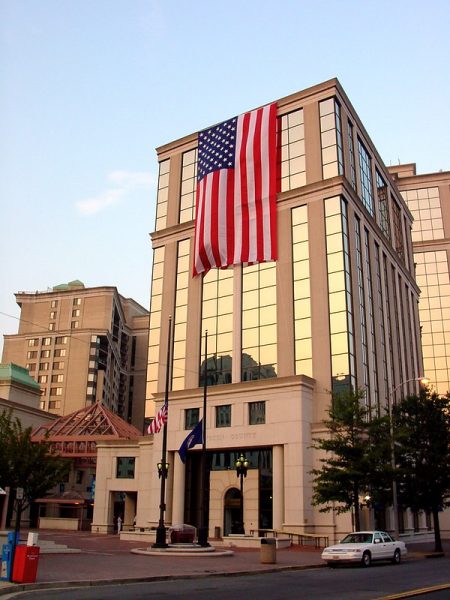National crises can have long lasting impacts beyond the day or year they occur. For example, in the wake of September 11th, American nationalism increased. However, the unity Americans displayed was an exclusive form of nationalism that pitted many U.S. citizens against non-citizens. A recent study found that following the 9/11 national crisis, non-citizens in the United States faced a greater likelihood of imprisonment than citizens. In fact, by 2010 nearly 48 percent of the federal docket was comprised of cases against non-U.S. citizens.
Michael Light, Ellen Dinsmore and Michael Massoglia examined a database of federal criminal felony offenses that includes case type, defendant characteristics, court location, and judge-specific data. They find non-U.S. citizens living in New York and Washington D.C were eight percent more likely to be imprisoned than U.S. citizens after 9/11. The increased likelihood of incarceration for non-citizens in New York and D.C. was evident for a full four years after September 11, 2001.
The authors suggest that the reason for this disparity in criminal punishment is not due to changes in federal policies, but instead due to judges being less sympathetic to defendants without American citizenship during times of national emergencies. In other words, the federal criminal justice system is not unbiased: Legal actors like judges can be affected by national fear during times of crisis.
This research raises important questions about the functioning of democratic institutions in the wake of national emergencies. The findings show legal patterns of inequality that target non-U.S. citizens — raising the question of whether the American penal system has become a component of immigration enforcement.


Comments